At the second annual Believer Festival in Las Vegas, where the theme was “Desert Songs,” I was tasked with respectfully cornering people to ask them this question: “What’s a song you’ve returned to over and over in your life?”
It felt a little bit like holding a flashlight steady for someone who was looking for something in a dark closet. Many people chose a song that made them feel something: powerful, or vulnerable, or sexy, or alive in an alter ego (“My song let me be an asshole,” said one person). Some said they’d been walking around with feelings that didn’t exist until they heard the song. Some could not settle on a song but could locate something urgent they needed to express about their relationship with music—an intimate relationship, like one with a living person.
This is a question worth asking people in your life, whether or not you live in the desert. You’ll get to temporarily accompany people to a place they need to keep alive—a high-school classroom, their church on Sunday, an internal mystery, a reliable freedom. For cartoonist Thi Bui, it was the cardboard box she’d sit in with her little brother when they were kids, singing Paul Simon songs. When she told me about this box at the festival, she remembered exactly where it had been in her childhood living room. That cardboard box has long since disappeared. The music hasn’t.
—Mari Brown
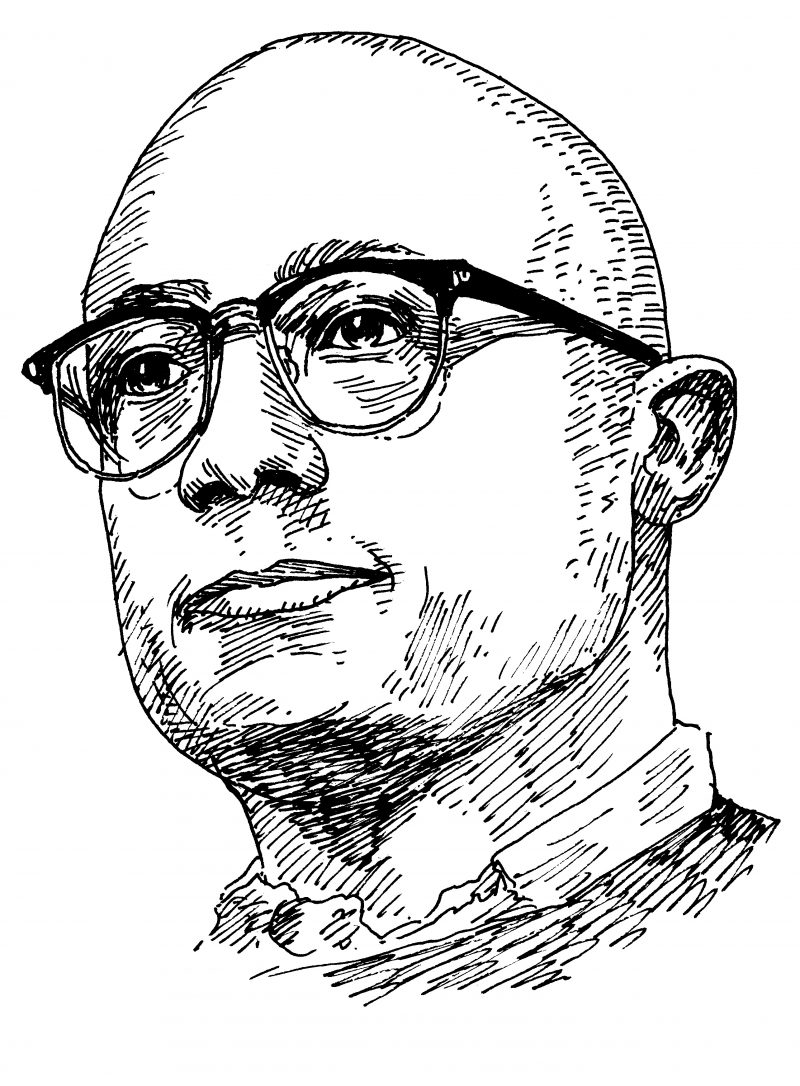
BARRY JENKINS
[Director, Screenwriter]
Song Discussed: “Requiem for Dying Mothers/Requiem String Melody,” Stars of the Lid
BARRY JENKINS: I was in film school, I was trying to expand my world, so I would go to a record store, and they had this bin of “experimental discs,” and they were, like, ninety-nine cents, so I would get ten bucks every week and just go grab random things, trying to find music for my movies. And I found this song in the bin.
THE BELIEVER: So you put it on and… what happened to you?
BJ: First of all, it wasn’t antagonistic. ’Cause a lot of things in the experimental bin could be antagonistic, you know, from a sound standpoint? Like aggressive art-noise, found-sound kinda shit? This was very inviting. And so… my guard was let down, and then I guess, halfway through the track I realized I was riding this emotional wave. There was a tension in the song, but I felt at peace. And, I don’t know, I guess I just like heavy moods?
BLVR: When you listen to it now, what are you using it to do?
BJ: You know, it’s not that time stops when I listen to this piece, but there’s a lot in my head all the time. I heard this quote once, very simple, it’s like: “Eyes open, mind quiets. Eyes closed, mind riots.” And this song, whenever I hear it: mind quiets.
BLVR: And at the end of the song, you feel…?
BJ: At the end of it—this is literally a nine-minute track—these descending string chords just bleed away, and then this whimpering dog comes up.
BLVR: Whimpering dog.
BJ: It’s from the experimental bin.

MOHSIN HAMID
[Author]
Song Discussed: “Taj Mahal,” Gilberto Gil and Jorge Ben
THE BELIEVER: Where were you the first time you heard this song?
MOHSIN HAMID: It was 1994. I was in Cambridge, Massachusetts, with my Brazilian roommate. He put it on and I realized the world wasn’t what I thought it was. The world was more connected than I had ever imagined. Here were two Brazilian dudes singing in 1975 about the love story that had given birth to the Taj Mahal, centuries earlier, in my own South Asian neighborhood. An ancient piece of my culture had washed up in South America and been transformed into this crazy, funny, beautiful, hypnotic song. I understood at that moment that the world didn’t have a center—not London, not New York. Every place could be the center. Every place could connect with the rest of the planet. In fact, every place already had. And was more fertile for it.
BLVR: Do you intentionally use the song to feel something now?
MH: I use it to feel happy, to feel inspired, to feel crazy, and to feel the world coming together, wherever I am. I play it for people for the same reasons.
BLVR: Has the song lost power over time?
MH: None. The shock of the new has gone away, of hearing it for the first time. But that’s been replaced with the shock of finding the same intensity in it, undiminished. Almost nothing keeps its intensity over the decades. This song, for me, does.
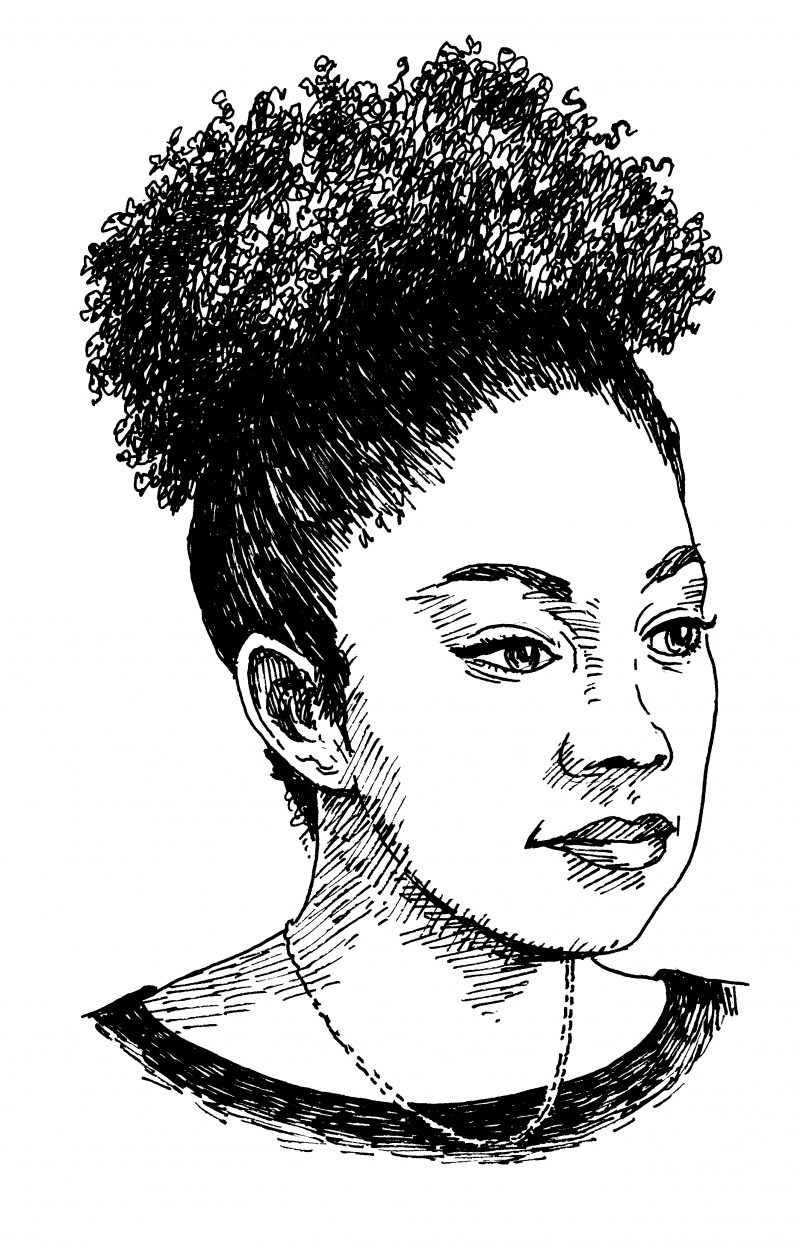
ZINZI CLEMMONS
[Author]
Song Discussed: “Green Eyes,” Erykah Badu
ZINZI CLEMMONS: I was in Fort Greene, Brooklyn. I would listen to that song on repeat, walking around the neighborhood, which used to be her neighborhood, and I felt like I was kind of walking in her footsteps.
THE BELIEVER: What did that song give you?
ZC: It’s called “Green Eyes,” and I have green eyes. And it’s a little bit of an unusual thing, to be a black woman who has green eyes. It’s also about jealousy, about being jealous of your lover’s other lover, but it’s also about vulnerability. It echoed the messiness of my life, when you’re in your early twenties and you’re a woman trying to find your way, just kind of feeling like you’re not enough for somebody? And it made me feel like, Oh, this person who’s so strong and powerful can also have these vulnerable moments. It made me feel like less of a fuckup.
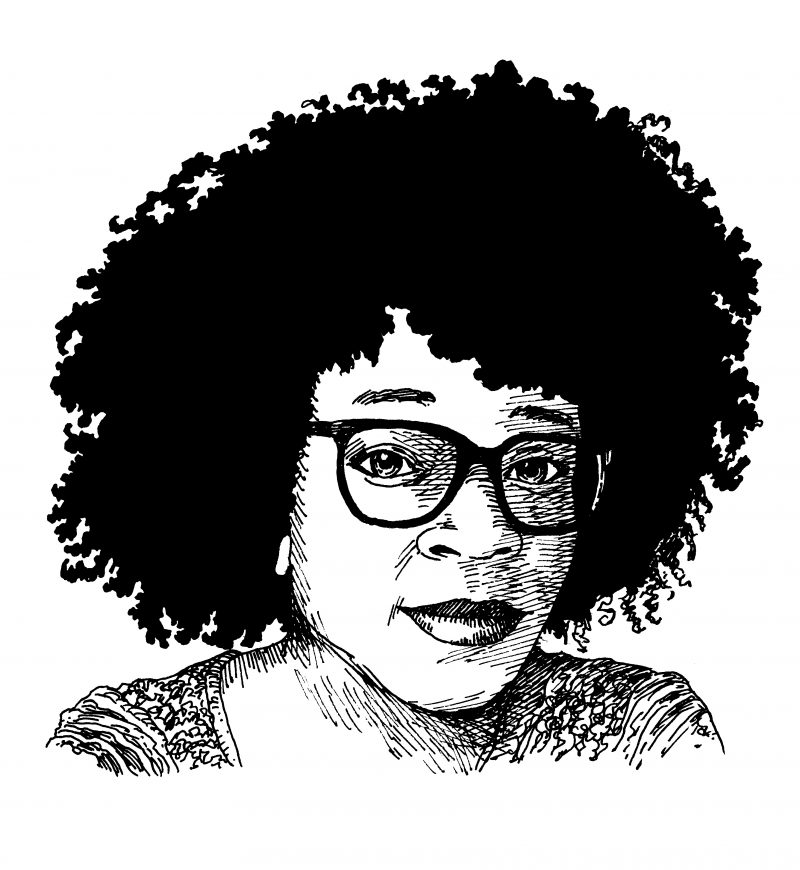
MORGAN JERKINS
[Author]
Song Discussed: “Kashmir,” Led Zeppelin
MORGAN JERKINS: I was a freshman in music theory class. I had no idea who Led Zeppelin was. I didn’t think I was a person who liked rock music at all. I grew up in an era where labels were very strict, and if you were a black person who liked rock music, you were automatically seen as weird.
THE BELIEVER: What did rock music make you feel?
MJ: Less inhibited. More in tune with my body. Transcendent.
BLVR: Did it feel male?
MJ: No! I never really thought of it as male, and I think it was because I didn’t really know what it meant to be a woman besides my genitalia, which is rooted in me being cisgender, which is a very narrow way of thinking of womanhood. I wasn’t thinking about maleness. To be honest, I wasn’t even thinking about whiteness when I listened to it. I think that is the power of music itself. You might be mindful of the differences, but it doesn’t prevent you from saying this is a good tune. I’m a writer, so I deal a lot with emotion, but I over-intellectualize my emotions a lot. Music, particularly that song, was a way to elude those sorts of parameters that I set for myself.
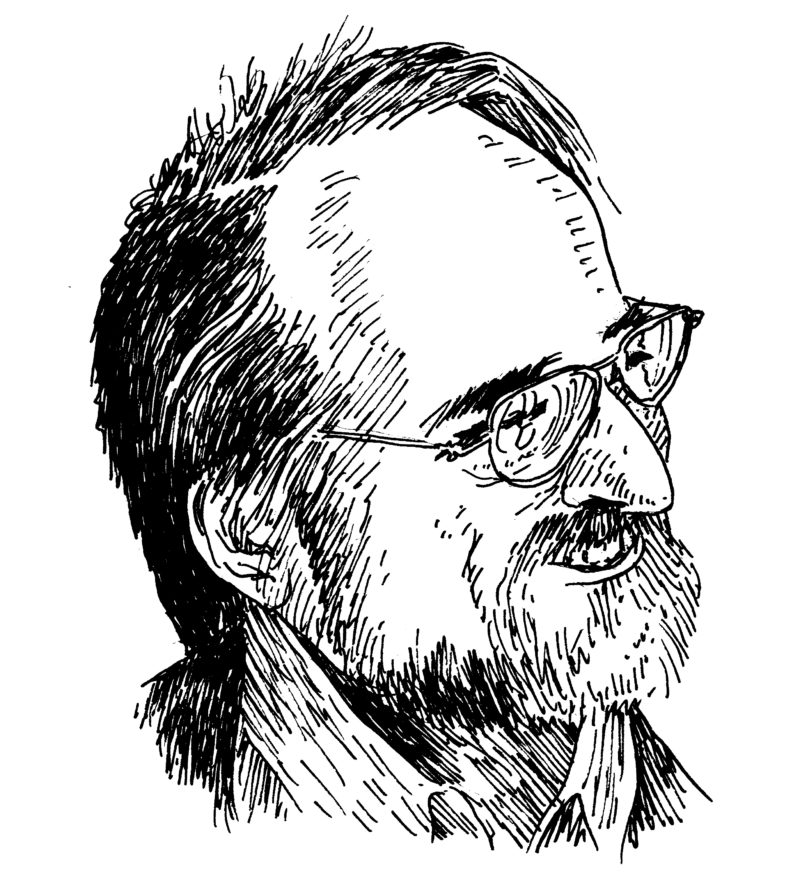
LAWRENCE WESCHLER
[Author]
Song Discussed: [Vermeer as music]
LAWRENCE WESCHLER: I am half a page in Oliver Sacks’s Musicophilia: Tales of Music and the Brain. What I cannot do is hear whether notes go up or down. I know that the first three notes of Beethoven’s Fifth Symphony are the same, and then the fourth one does something. Does it go up or down? I can’t tell. Having said that, I often write [prose] without intending to, as though it’s music, with tone and syncopation. I wrote a piece about my grandfather, the major German composer Ernst Toch, and the ending is completely lifted from his Seventh Symphony. But I was not aware of it as I was doing it.
THE BELIEVER: This is a whole new category of plagiarism.
LW: I think that the visual side of me is very musical, actually. I hum images.
BLVR: Any in particular?
[LW beams Vermeer’s Girl with a Pearl Earring from some tiny, futuristic-seeming device onto the interviewer’s hand.]
LW: So the answer to the key question in this picture—is she turning toward you or just turning away?—is “both,” and the melancholy of this is transferred to the tear-like pearl at her ear. How’s that for a song? Did that count as a song?
BLVR: That counts as the blues, I think. When do you find yourself seeking out this song?
LW: I live in it.

THI BUI
[Cartoonist, Author]
Song Discussed: “Graceland,” Paul Simon
THI BUI: It was playing in the lobby of the hotel on my way here, so it’s in the back of my head. Paul Simon is somebody I grew up with. I guess I have some eclectic tastes that are… you know, all tastes are randomly built by the things our parents put in our reach, and I happen to have [had] a lot of Paul Simon, Simon and Garfunkel, and Kahlil Gibran’s poetry, growing up. Those things all formed part of my language development.
THE BELIEVER: Where were you the first time you heard “Graceland”?
TB: I was a teenager. I was old enough to realize that it was a problematic album in a lot of ways, you know. There’s cultural appropriation, and I think that he actually played [it] in South Africa when a lot of artists were boycotting apartheid. So I have mixed feelings about it. And to me, having mixed feelings about something you really love is being American.
BLVR: You said you identify with a sense of world-weariness in his lyrics. After you listen to the song, how do you feel?
TB: I feel transformed. Because something beautiful was made from the world-weariness.
BLVR: Hope?
TB: No. It’s just beauty.
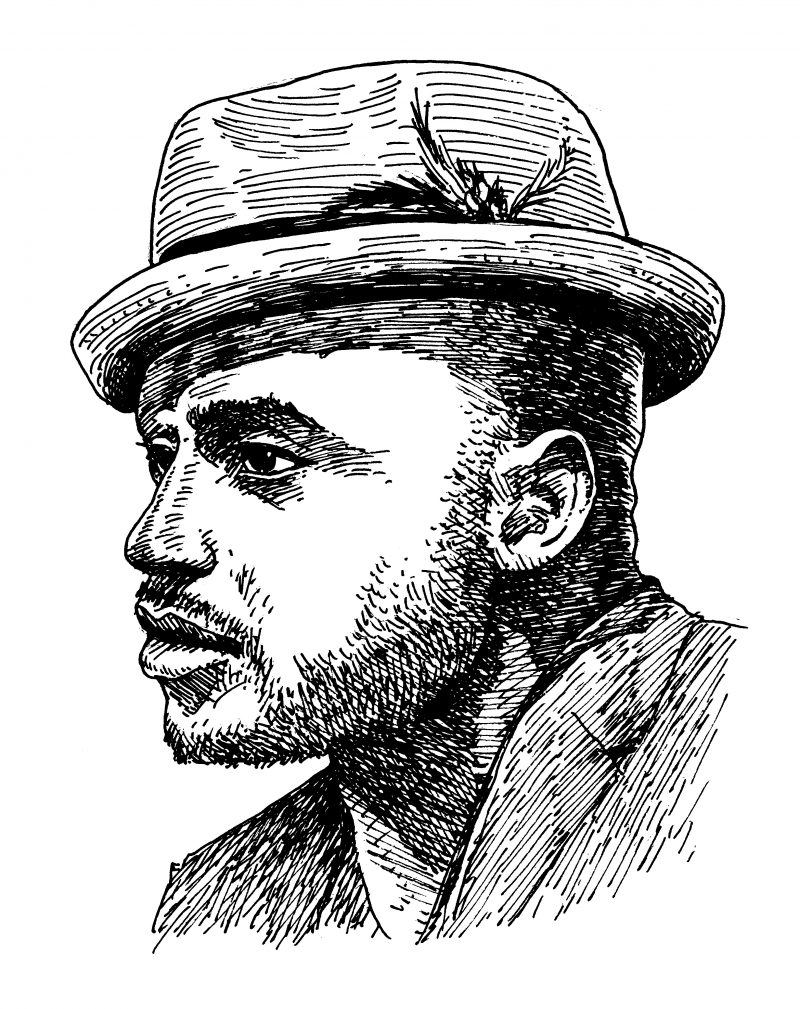
JAVON JOHNSON
[Poet, Author]
Song Discussed: “To Be Young, Gifted and Black,” Donny Hathaway
JAVON JOHNSON: I grew up in a black, Baptist church in Los Angeles. The kids performed for every reason imaginable. One Sunday they played that song. I can’t remember what the occasion was, but I remember we had to walk in to it, and I just remember the words and the grain of the voice. There was a church to the music in and of itself.
THE BELIEVER: Did you intentionally return to that song later in your life?
JJ: I was poor. I grew up poor. I was in high school, and that song was on the radio, and I remember going, I need to have this. I had this Radio Shack radio that I begged my parents to buy me. It had two tape decks. It had an AM/FM tuner. It wasn’t this all-in-one unit. It had two separate speakers. I felt fancy because the speakers were separate. And I used to have a bunch of blank tapes next to the radio and I remember recording that song and making sure nothing else was on that tape but that song.
BLVR: Did you give that tape to anyone?
JJ: No. It was mine. You know, one of my favorite comments that I get after a performance is someone going, “That’s my poem.” People have said to me, “That’s my poem” in the same way that I’ve said, “That’s my song.” I think there’s a way in which music and art speak to moments, speak to things we need, speak to possibilities of better, of more. To say that something is good doesn’t do it justice. To say that it’s phenomenal doesn’t do it justice. To say that it’s a masterpiece doesn’t do it justice. The best way you can say it is “It’s mine.” The same way that my arm is my arm.

NICK HORNBY
[Author]
Song Discussed: “Song for My Father,” Horace Silver. But really jazz, the genre. And Martians.
NICK HORNBY: About four years ago, on holiday, I suddenly just came to jazz. And it has taken up all of my musical time. This song got me in, finally, irrevocably. Partly, I have been listening to this song all my life, because the bass line is from Steely Dan’s “Rikki Don’t Lose That Number”: doo-doo, doo-doo, doo-doo, doo-doo. And so it gave me a familiarity, and it turned out to be the only guideline I needed. You know, I always loved solos, listening to rock music: “This is a really good solo” and “Oh, I love the way he plays the solo on that.” And that’s what jazz is! What’s not to like?
THE BELIEVER: But for years—
NH: For thirty years I’d been saying, “There’s nothing to like.” I’ve gone full circle.
BLVR: Are you afraid that jazz could lose its power for you over time?
NH: I’m not afraid of any music losing its power over time. One of the things that tripped me off into this was I was coming to a point where I wondered, How long can I continue to listen to songs with guitars in them? ’Cause it’s been fifty years. Again, I’m sixty, and I was very aware of the Beatles when I was seven, and it’s been fifty-three years of listening to things that sound more or less like the Beatles, in a very broad sense. If you brought a Martian down and said, “Here’s REM, and here’s the Beatles,” the Martian would go, “Yeah, they’re the same,” whereas we have endless arguments about whether one’s better than the other.
BLVR: The Martian is there for sort of blunt discernment.
NH: Yes. Blunt discernment. “Well, they’ve got guitar chords, lyrics—”
BLVR: “Human voices—”
NH: “Men singing—”
BLVR: “It’s not a vacuum cleaner.”
NH: And I think I’d probably gotten to a point where I was a Martian.





